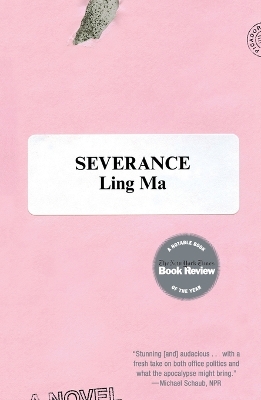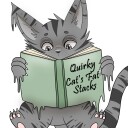
nannah
Content warnings:
- ableism, fatphobia mention
Representation:
- the protagonist is Chinese American
Candace Chen, lover of routine, is hardly concerned when a new plague called Shen Fever spreads through New York City. While everyone else evacuates the city, Candace stays behind to update a hobby photography blog with details about what's happening — a blog that soon goes viral. When she can no longer hold out on her own, she is picked up by a band of survivors led by a suspicious former IT tech who promises he knows a place where they can all start over fresh. But Candace is wary of his similarity to past cult leaders, and she must decide whether to stay with his group or risk surviving on her own again.
Initially, I was struck by the writing style; it's very beautiful and unique. I'm also usually a sucker for books without quotation marks, because that often means that is written with a distinct style in mind, not just written to be pictured like a movie. However, I didn't feel that in this particular case it added anything to the book. The style did work in the beginning, in the present-tense sections, because it's so philosophical and meandering and reflective. But when the POV switches to the sections taking place in the past, it reads like any other contemporary lit, and I don't see any reason them for such a stylized choice.
I also feel a little lost when it comes to the actual Shen Fever itself. If it's (actually) a fungal disease, how does it spread? The survivors we follow use masks and gloves while in Fevered houses, but if they're taking things, that doesn't seem like enough protection, right? But this disease is also kind of not "literally" a disease, if I'm interpreting this right, so that might not even matter.
The book is definitely about capitalism, and about the unnatural and often isolated routines capitalism forces us to fall into, but unfortunately it delivers this message with a very unsubtle hand. All of the brand names very liberally peppered into the prose got old quickly, and it wasn't all that clear as to what it added — unless it was to highlight Candace's character in particular. There was this underlying critique of millennials (and "millennial culture"), which I didn't understand, because it was so different to my life and the lives of my own millennial friends. So to me it felt more like an outsider taking shots at my generation using stereotypes. However, Ling Ma is also a millennial, so who knows? My friends and I could be the outliers.
However, she definitely has talent. She can write when she wants to. There was a moment when I was so affected by the story and the writing that I had to stop reading and just take it all in for a moment. There's no doubt that I need to read what else she's written, or what else she'll write next, because although this novel isn't for me, it's well written.



